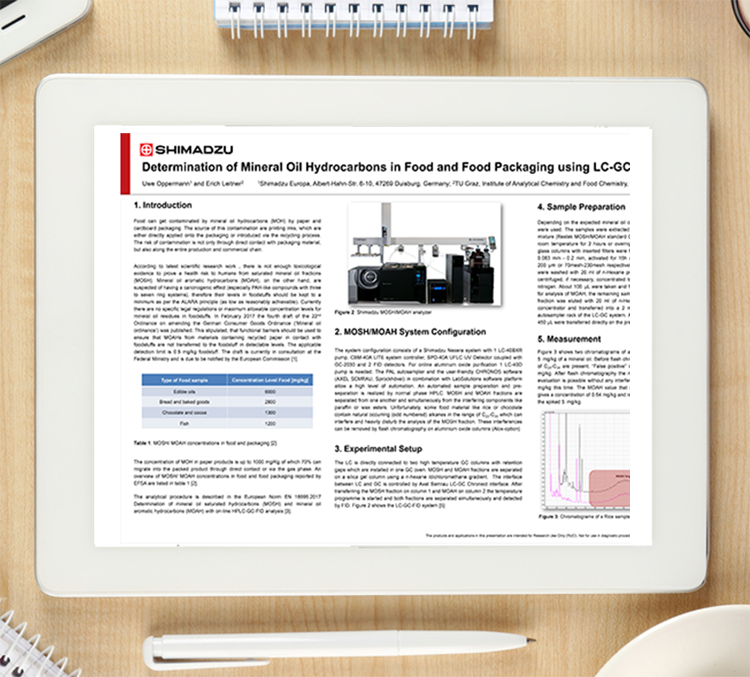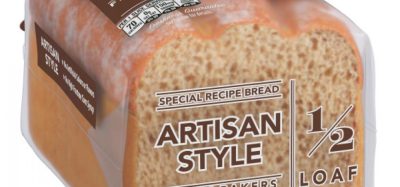Application: Determination of mineral oil hydrocarbons in food
- Like
- Digg
- Del
- Tumblr
- VKontakte
- Buffer
- Love This
- Odnoklassniki
- Meneame
- Blogger
- Amazon
- Yahoo Mail
- Gmail
- AOL
- Newsvine
- HackerNews
- Evernote
- MySpace
- Mail.ru
- Viadeo
- Line
- Comments
- Yummly
- SMS
- Viber
- Telegram
- Subscribe
- Skype
- Facebook Messenger
- Kakao
- LiveJournal
- Yammer
- Edgar
- Fintel
- Mix
- Instapaper
- Copy Link
Posted: 10 June 2021 | Shimadzu Europa GmbH | No comments yet
This application describes the determination of mineral oil hydrocarbons in food and food packaging by using LC-GCxGCMS technique.
Food can get contaminated by mineral oil hydrocarbons (MOH) by paper and cardboard packaging. The source of this contamination are printing inks, which are either directly applied onto the packaging or introduced via the recycling process. The risk of contamination is not only through direct contact with packaging material, but also along the entire production and commercial chain.
According to latest scientific research work, there is not enough toxicological evidence to prove a health risk to humans from saturated mineral oil fractions (MOSH). Mineral oil aromatic hydrocarbons (MOAH), on the other hand, are suspected of having a carcinogenic effect (especially PAH-like compounds with three to seven ring systems), therefore their levels in foodstuffs should be kept to a minimum as per the ALARA principle (as low as reasonably achievable). Currently there are no specific legal regulations or maximum allowable concentration levels for mineral oil residues in foodstuffs. In February 2017 the fourth draft of the 22nd Ordinance on amending the German Consumer Goods Ordinance (‘Mineral oil ordinance’) was published. This stipulated, that functional barriers should be used to ensure that MOAHs from materials containing recycled paper in contact with foodstuffs are not transferred to the foodstuff in detectable levels. The applicable detection limit is 0.5 mg/kg foodstuff. The draft is currently in consultation at the Federal Ministry and is due to be notified by the European Commission.
Related content from this organisation
- Application Note: Measuring flavonols in tea leaves
- Application Note: Quantitative analysis of catechins in tea leaves
- Application Note: Quantitative analysis of carotenoids in tea leaves
- High-speed analysis of bitter flavours in beer
- Application Note: Determination of lactose or fructose intolerance










